Best Indoor Plants for Energy Cleanse

Definition of Energy Cleansing
Ever heard of energy cleansing? It’s this really cool practice where you remove negative vibes from your space and replace them with positive, uplifting energy. In our busy lives, creating a peaceful and balanced home environment is super important. One of the best ways to do this is by bringing in some indoor plants. Not only do they look great, but they also have amazing natural powers to cleanse your energy and improve your well-being.
Importance of Energy Cleansing in Modern Living
In today’s fast-paced world, maintaining a positive and harmonious living space is crucial. Energy cleansing helps create a tranquil and nurturing environment, reducing the negative impact of stress and fostering a sense of peace and balance in our daily lives.
Role of Indoor Plants in Energy Cleansing
Indoor plants are natural energy cleansers. They not only purify the air but also absorb negative energy and emit positive vibes. By integrating plants into your living space, you can harness their cleansing properties to enhance your home’s atmosphere and promote well-being.
Types and Categories of Indoor Plants for Energy Cleanse
Air-Purifying Plants
Air-purifying plants, such as snake plants and spider plants, are known for their ability to filter out toxins and improve air quality. They help remove pollutants like formaldehyde and benzene, creating a cleaner and healthier indoor environment.
Aromatic Plants
Aromatic plants, such as lavender and rosemary, release soothing scents that can reduce stress and promote relaxation. Their fragrances are not only pleasant but also have therapeutic benefits, helping to cleanse the mind and body.
Feng Shui Plants
Feng Shui plants, like the money plant and bamboo palm, are chosen for their ability to balance energy in a space. According to Feng Shui principles, these plants can attract positive energy and prosperity, enhancing the overall harmony of your home.
Low-Maintenance Plants
Low-maintenance plants, such as succulents and cacti, are ideal for those with busy lifestyles. These plants require minimal care and can thrive in various conditions, making them perfect for energy cleansing without demanding much attention.
Edible Plants with Cleansing Properties
Edible plants, such as basil and mint, not only add flavor to your meals but also offer energy-cleansing benefits. These herbs can be grown indoors and used in cooking, providing both nutritional and energetic benefits.
Benefits of Indoor Plants for Energy Cleanse
Improved Air Quality: Indoor plants play a significant role in improving air quality by absorbing pollutants and releasing oxygen. This process helps reduce indoor air pollution, leading to a healthier living environment.
Enhanced Mood and Mental Health: The presence of indoor plants can significantly boost your mood and mental health. Studies have shown that being around plants can reduce symptoms of depression and anxiety, promoting a more positive outlook on life.
Stress Reduction: The calming effect of indoor plants helps in reducing stress levels. The act of caring for plants can also be therapeutic, providing a sense of accomplishment and purpose.
Better Sleep Quality: Certain plants, such as lavender and jasmine, are known for their sleep-enhancing properties. Placing these plants in your bedroom can help improve sleep quality by promoting relaxation and reducing stress.
Increased Productivity: Indoor plants can enhance productivity and focus. Studies have found that having plants in the workplace or home office can improve concentration and cognitive function, leading to better performance.
Top Indoor Plants for Energy Cleanse
Aloe Vera
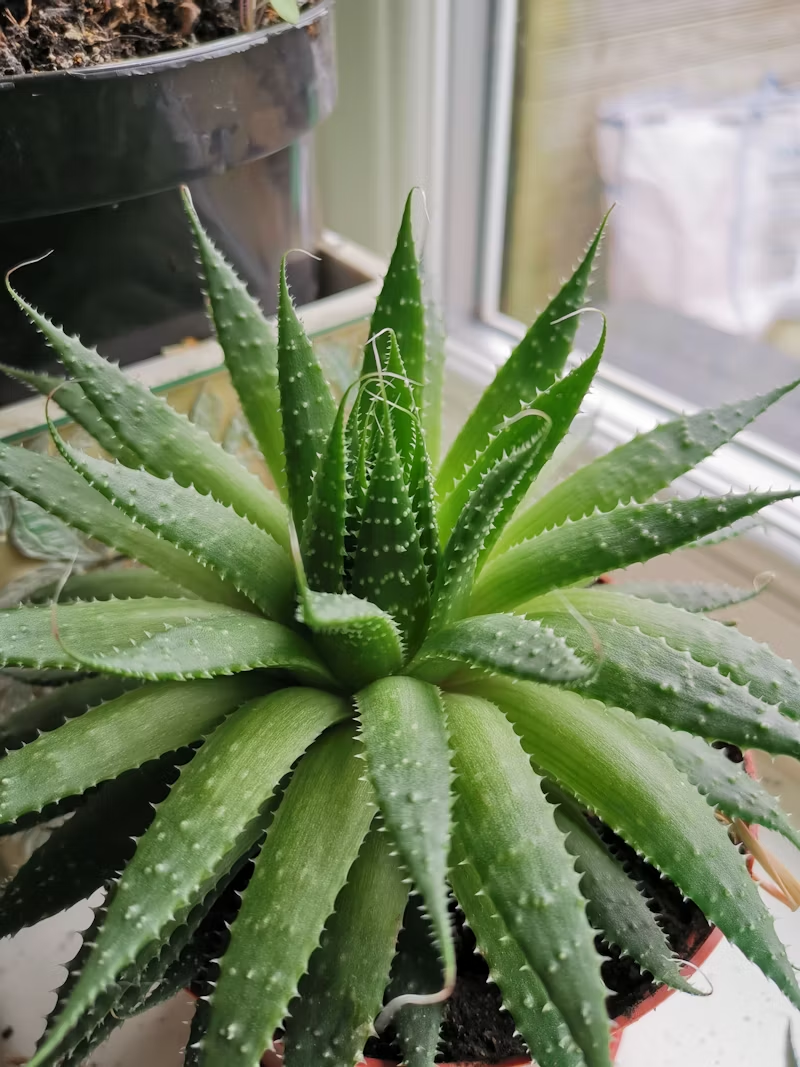
Benefits: Aloe Vera is known for its air-purifying qualities and its ability to absorb chemicals like formaldehyde. It also has medicinal properties, making it a versatile plant for energy cleansing.
Care Instructions: Aloe Vera thrives in bright, indirect sunlight and requires minimal watering. Water the plant thoroughly but allow the soil to dry out between waterings to prevent root rot.
Spider Plant
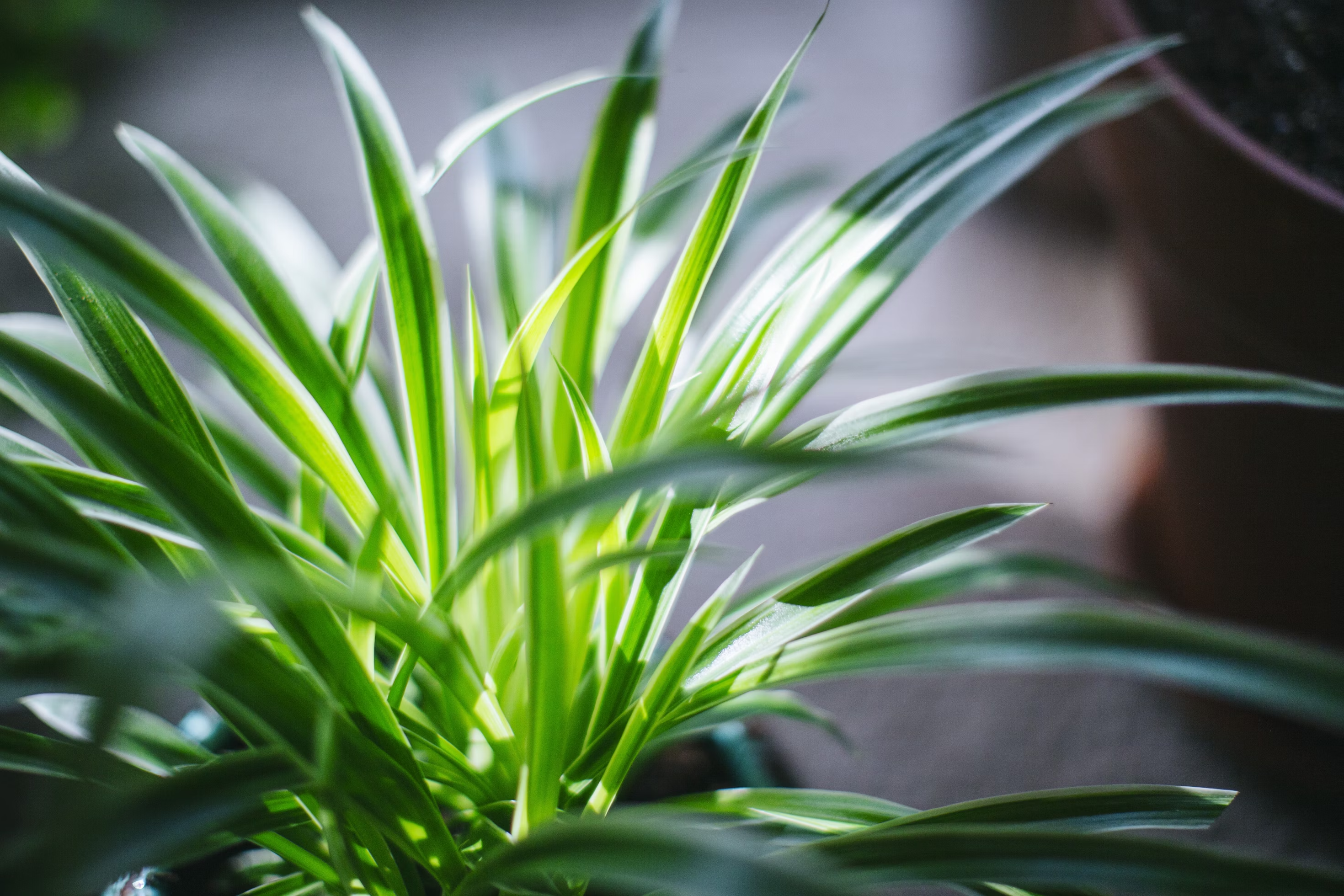
Benefits: Spider plants are excellent at removing indoor pollutants such as formaldehyde and xylene. They also produce oxygen and improve humidity, which can help alleviate respiratory issues.
Care Instructions: Spider plants prefer bright, indirect light and moderate watering. Keep the soil slightly moist but avoid overwatering.
Peace Lily
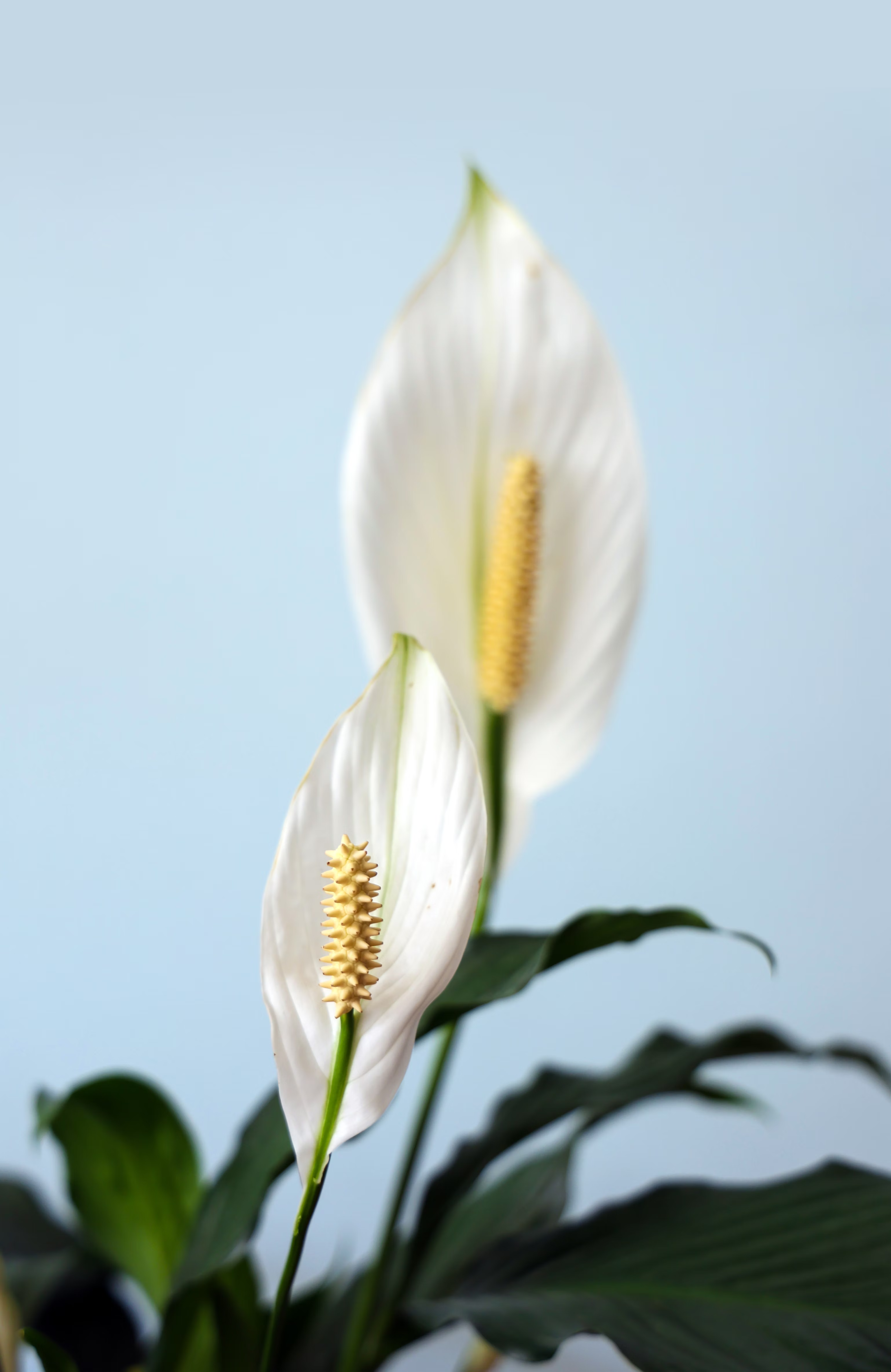
Benefits: Peace lilies are effective at removing toxins like ammonia and benzene from the air. They also increase humidity, which can be beneficial for dry indoor environments.
Care Instructions: Peace lilies thrive in low to medium light conditions and prefer to be kept moist. Water them regularly but avoid letting the soil become waterlogged.
Snake Plant
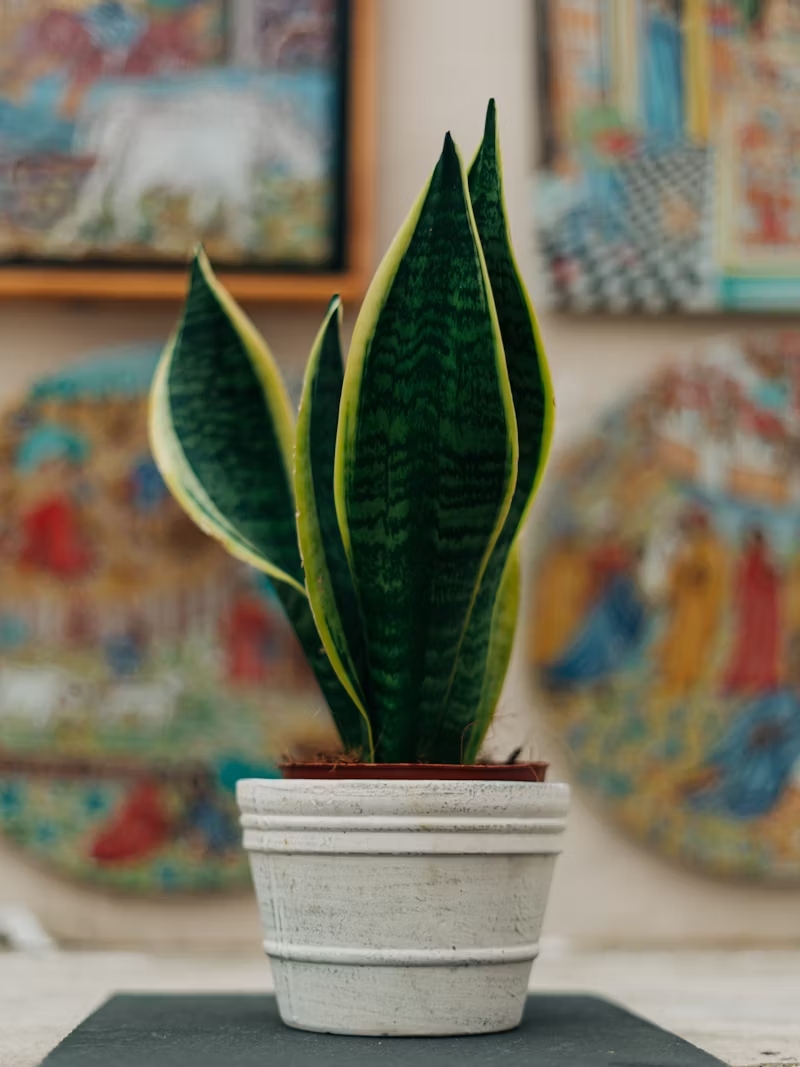
Benefits: Snake plants, also known as mother-in-law’s tongue, are known for their ability to filter out toxins such as formaldehyde and nitrogen oxides. They also release oxygen at night, making them ideal for bedrooms.
Care Instructions: Snake plants are low-maintenance and can tolerate low light levels. Water them sparingly, allowing the soil to dry out between waterings.
Lavender
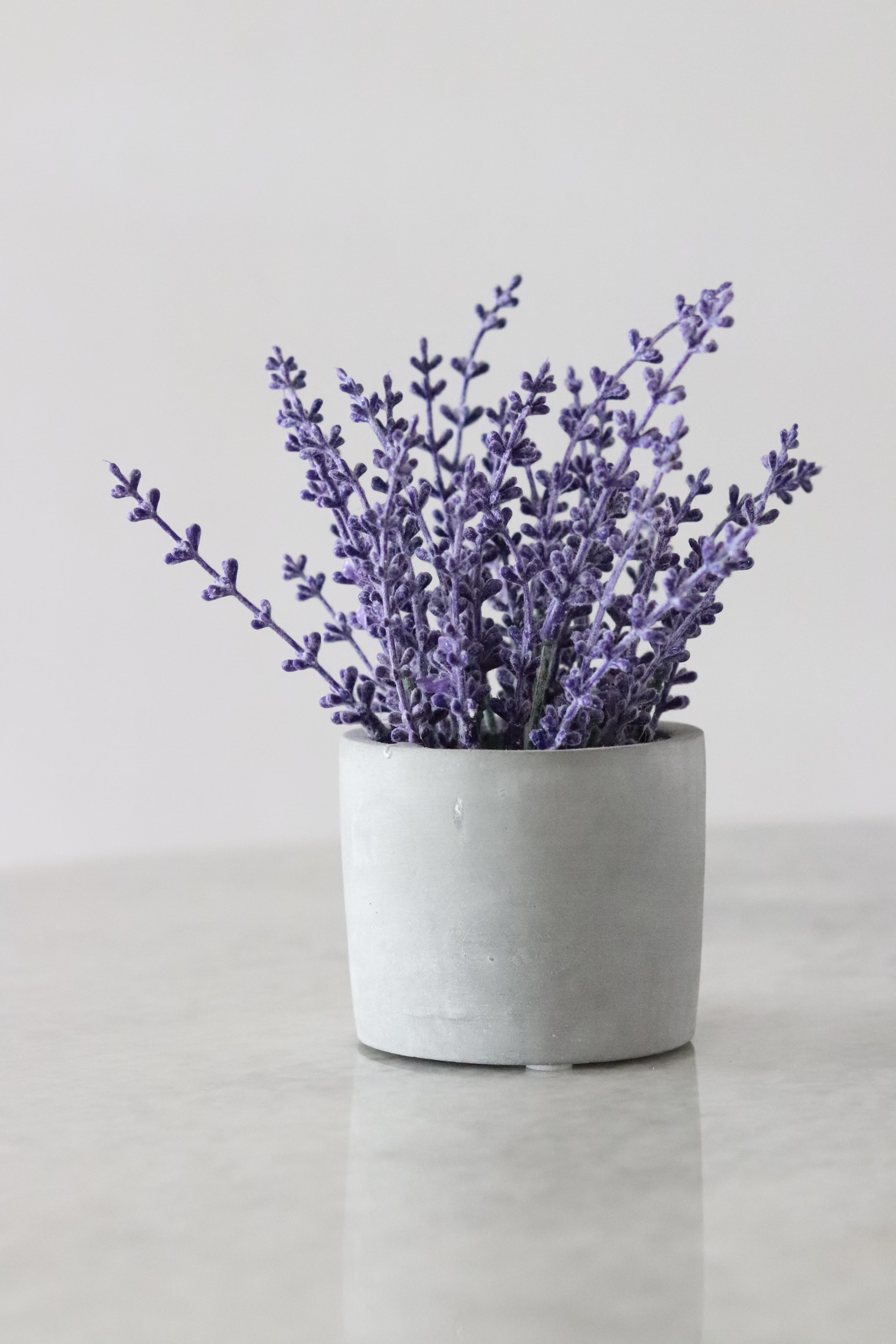
Benefits: Lavender is renowned for its calming fragrance, which can help reduce stress and promote relaxation. It also has antibacterial properties and can improve air quality.
Care Instructions: Lavender requires bright, direct sunlight and well-draining soil. Water the plant sparingly, as it prefers dry conditions.
Basil
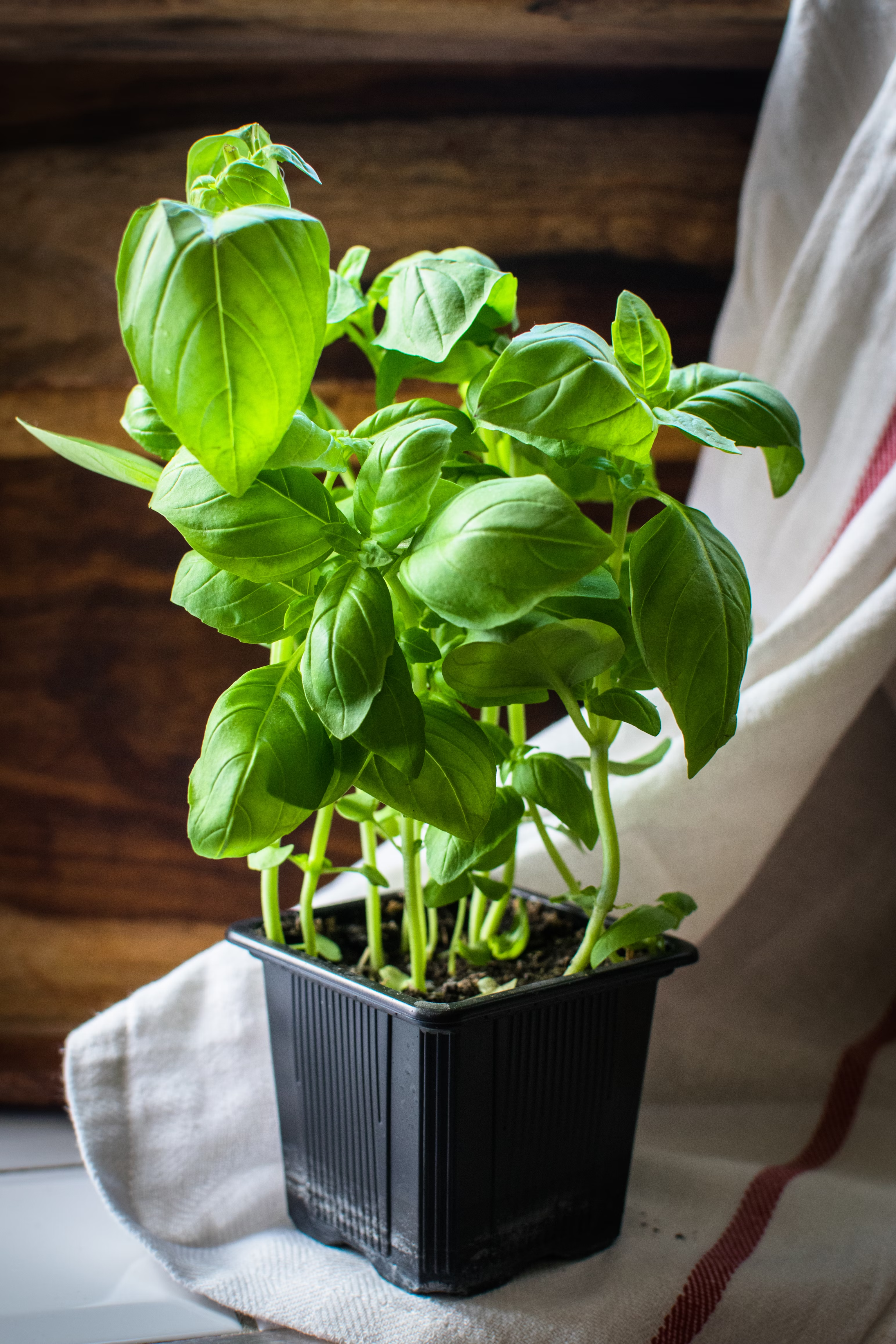
Benefits: Basil not only adds flavor to your dishes but also has air-purifying properties. It can help remove pollutants and improve indoor air quality.
Care Instructions: Basil needs plenty of sunlight and regular watering. Keep the soil moist but not waterlogged.
Jasmine
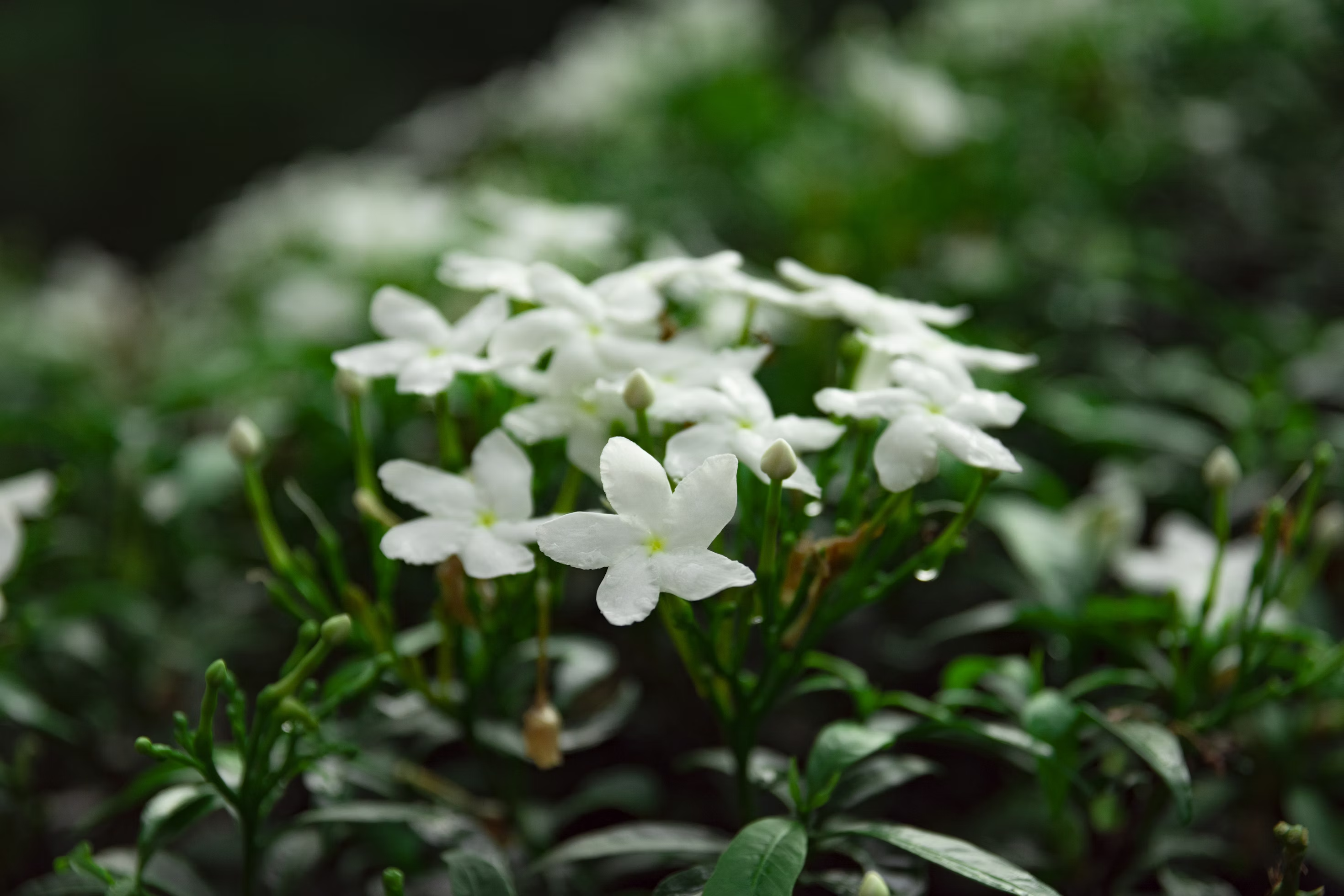
Benefits: Jasmine is known for its sweet fragrance, which can promote relaxation and improve sleep quality. It also has air-purifying properties.
Care Instructions: Jasmine thrives in bright, indirect sunlight and needs regular watering. Keep the soil moist but not soggy.
Rosemary
Benefits: Rosemary has a refreshing aroma that can boost mood and mental clarity. It also has air-purifying properties and can improve indoor air quality.
Care Instructions: Rosemary requires plenty of sunlight and well-draining soil. Water it regularly but allow the soil to dry out between waterings.
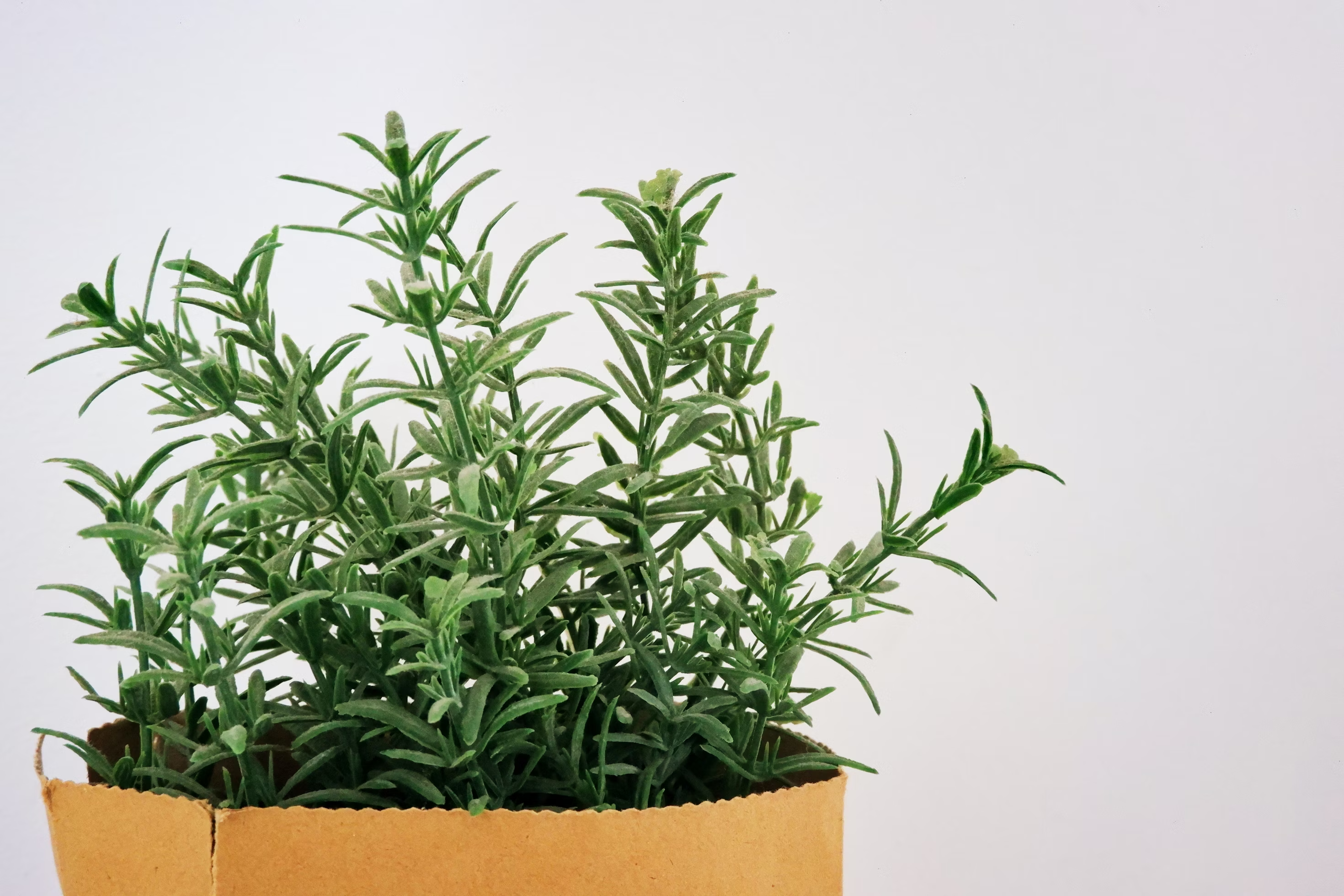
English Ivy
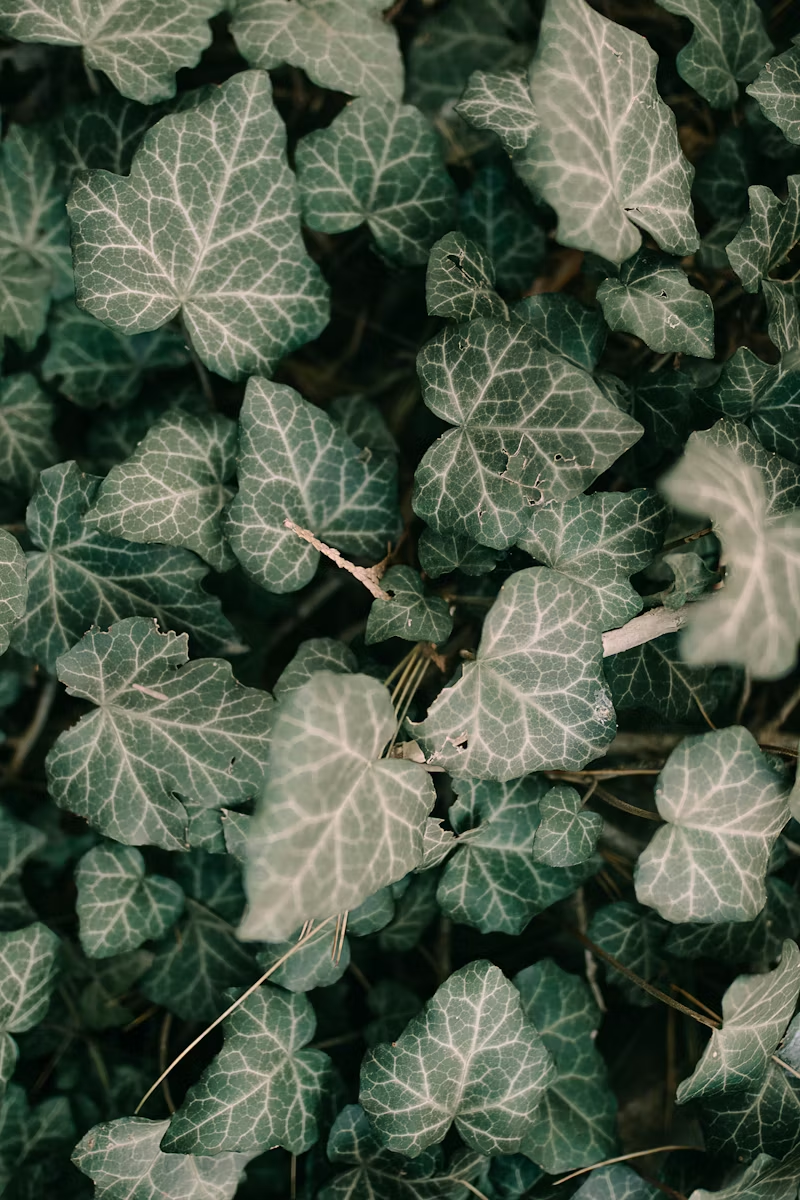
Benefits: English Ivy is effective at removing airborne mold and toxins, improving air quality. It also helps reduce indoor allergens.
Care Instructions: English Ivy prefers bright, indirect light and regular watering. Keep the soil moist but not waterlogged.
Bamboo Palm

Benefits: Bamboo Palm is known for its ability to filter out toxins such as formaldehyde, benzene, and trichloroethylene. It also adds humidity to the air, which can be beneficial for dry indoor environments.
Care Instructions: Bamboo Palm thrives in low to bright indirect light and needs regular watering. Keep the soil consistently moist but avoid overwatering.
How to Choose the Right Indoor Plants for Your Home
Assessing Light Conditions
Evaluate the natural light available in your home to determine which plants will thrive. Some plants require bright, direct sunlight, while others can tolerate low light conditions.
Considering Plant Size and Space
Consider the size of the plants and the space available in your home. Ensure that the plants have enough room to grow without overcrowding.
Matching Plants with Your Lifestyle
Choose plants that match your lifestyle and level of commitment. If you have a busy schedule, opt for low-maintenance plants that require minimal care.
Understanding Watering Needs
Different plants have different watering needs. Research the specific requirements of each plant to ensure they receive the appropriate amount of water.
Considering Allergies and Sensitivities
Be mindful of any allergies or sensitivities to plants. Some plants may produce pollen or have strong fragrances that can trigger allergic reactions.
Placement of Indoor Plants for Maximum Energy Cleansing
Living Room
Place air-purifying plants in the living room to improve air quality and create a calming atmosphere. Consider plants like the peace lily or snake plant.
Bedroom
Opt for plants that promote relaxation and better sleep in the bedroom. Lavender and jasmine are ideal choices for this space.
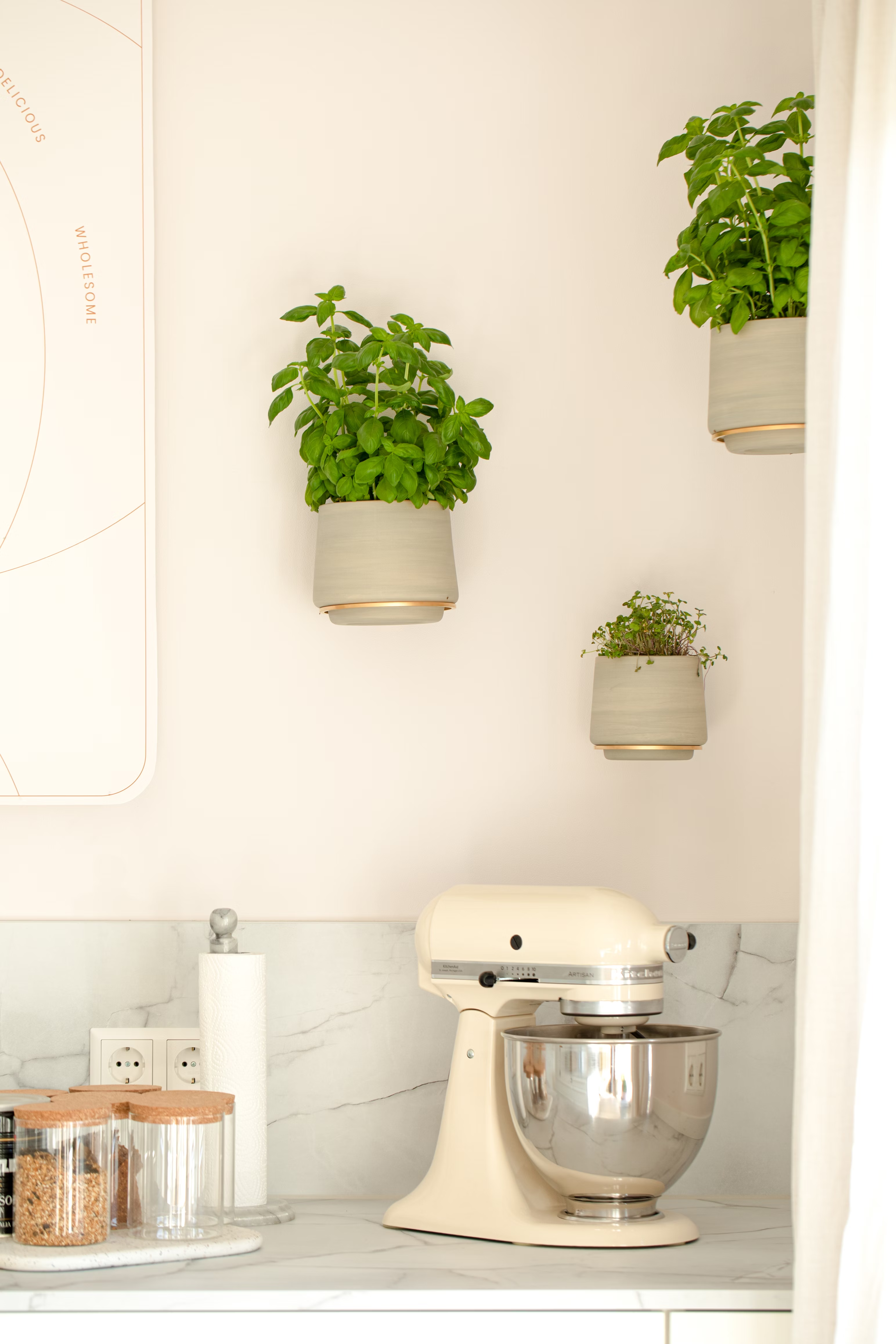
Kitchen
Herbs such as basil and rosemary can be placed in the kitchen. They not only purify the air but also add fresh flavors to your meals.
Bathroom
Choose moisture-loving plants like English ivy for the bathroom. These plants can thrive in the high humidity of this space.
Home Office
Enhance productivity and focus in your home office with plants like the snake plant or bamboo palm. These plants can help create a refreshing and energizing work environment.
Tips for Caring for Indoor Plants
Proper Watering Techniques
Water plants according to their specific needs. Avoid overwatering by allowing the soil to dry out between waterings for most plants.
Ensuring Adequate Sunlight
Place plants in locations where they can receive the appropriate amount of light. Rotate plants periodically to ensure even light distribution.
Fertilization Tips
Use a balanced fertilizer to provide essential nutrients to your plants. Follow the recommended fertilization schedule for each plant type.
Pruning and Repotting
Regularly prune plants to remove dead or yellowing leaves and encourage new growth. Repot plants when they outgrow their current containers.
Pest Control
Monitor plants for signs of pests and take action promptly. Use natural pest control methods or insecticidal soap to keep pests at bay.
Common Mistakes to Avoid with Indoor Plants
Overwatering
Overwatering is a common mistake that can lead to root rot. Ensure that the soil dries out between waterings for most plants.
Insufficient Light

Ensure that plants receive the necessary amount of light. If natural light is insufficient, consider using grow lights to supplement.
Ignoring Pests
Regularly check plants for pests and take action if needed. Ignoring pests can lead to infestations that harm your plants.
Using the Wrong Soil
Use the appropriate soil type for each plant. Some plants require well-draining soil, while others need moisture-retentive soil.
Neglecting Plant Rotation
Rotate plants periodically to ensure even exposure to light. This helps prevent uneven growth and promotes overall plant health.
Personal Stories and Testimonials
Case Study: Energy Cleansing with Aloe Vera
Jane, a busy professional, struggled with poor air quality in her apartment. She introduced aloe vera plants into her living space and noticed a significant improvement in air quality and a reduction in her allergy symptoms.
Case Study: Stress Reduction with Lavender
Mark, a college student, experienced high levels of stress during exams. He placed lavender plants in his study area and bedroom, which helped him relax and improved his sleep quality.
Testimonial: Improved Sleep with Jasmine
Sarah, a new mother, had difficulty sleeping due to stress and anxiety. She added jasmine plants to her bedroom and experienced better sleep quality and reduced anxiety.
Testimonial: Enhanced Focus with Basil
Tom, a freelance writer, found it hard to concentrate on his work. He placed basil plants in his home office, which helped improve his focus and productivity.
Expert Insights on Indoor Plants for Energy Cleanse
Interview with a Botanist
Dr. Green, a renowned botanist, emphasizes the importance of choosing the right plants for energy cleansing. “Plants like aloe vera and snake plants are not only easy to care for but also highly effective in improving indoor air quality,” he says.
Feng Shui Expert on Plant Placement
Ms. Feng, a Feng Shui expert, advises on the placement of plants for maximum energy cleansing. “Placing plants in the right areas of your home, such as the living room and bedroom, can significantly enhance the flow of positive energy,” she explains.
Herbalist’s Take on Edible Plants
Mr. Herb, an experienced herbalist, highlights the benefits of edible plants like basil and rosemary. “These plants not only purify the air but also provide nutritional benefits, making them a great addition to any home,” he notes.
Conclusion
Summary of Benefits
Indoor plants offer numerous benefits for energy cleansing, including improved air quality, enhanced mood, stress reduction, better sleep, and increased productivity. By incorporating these plants into your living space, you can create a healthier and more harmonious environment.
Final Tips for Incorporating Indoor Plants into Your Home
Choose plants that match your lifestyle and living conditions. Place them strategically in areas where they can thrive and provide the most benefits. Remember to care for them properly to ensure their health and longevity.
Encouragement to Start Your Energy Cleansing Journey
Start small by introducing a few indoor plants into your home. Observe the positive changes they bring to your environment and well-being. With time, you can expand your collection and enjoy the full benefits of energy cleansing with indoor plants.
Plants That Repulse Mosquitos and Flies
In addition to their energy-cleansing properties, some indoor plants can help keep pesky insects like mosquitos and flies at bay. These plants emit scents or contain compounds that insects find unpleasant, making them a natural and eco-friendly way to protect your home.
Citronella
Benefits: Citronella is well-known for its mosquito-repelling qualities. The strong citrus scent is effective in deterring mosquitos, making it a popular ingredient in many insect repellents.
Care Instructions: Citronella requires bright, indirect sunlight and well-draining soil. Water the plant regularly, ensuring the soil remains moist but not waterlogged. Prune it regularly to encourage bushy growth.
Lemongrass
Benefits: Lemongrass not only adds a fresh, lemony aroma to your home but also repels mosquitos and flies. The essential oils in lemongrass are effective in keeping these insects away.
Care Instructions: Lemongrass thrives in bright, direct sunlight and needs well-draining soil. Water it regularly, keeping the soil consistently moist. Lemongrass can grow quite tall, so make sure it has enough space.
Lavender
Benefits: Lavender’s sweet fragrance is delightful to humans but repulsive to mosquitos and flies. It also promotes relaxation and improves sleep quality.
Care Instructions: Lavender requires bright, direct sunlight and well-draining soil. Water the plant sparingly, as it prefers dry conditions. Prune regularly to maintain its shape and encourage new growth.
Basil
Benefits: Basil not only enhances your culinary dishes but also repels mosquitos and flies. The strong scent of basil is unpleasant to these insects, making it a useful plant for your kitchen or patio.
Care Instructions: Basil needs plenty of sunlight and regular watering. Keep the soil moist but not waterlogged. Pinch off the flower buds to encourage leaf growth and prolong the plant’s life.
Rosemary
Benefits: Rosemary has a strong, woody scent that deters mosquitos and flies. It’s also known for its air-purifying properties and can enhance mental clarity and focus.
Care Instructions: Rosemary requires bright, direct sunlight and well-draining soil. Water it regularly but allow the soil to dry out between waterings. Prune the plant to maintain its shape and promote bushy growth.
Mint
Benefits: Mint’s refreshing scent is effective in repelling mosquitos, flies, and even ants. It’s also a versatile herb that can be used in various culinary and medicinal applications.
Care Instructions: Mint prefers partial sunlight and well-draining soil. Water it regularly, keeping the soil moist but not waterlogged. Mint can spread quickly, so consider growing it in a pot to control its growth.
Conclusion
Incorporating plants that repel mosquitos and flies into your home not only enhances your space’s energy but also provides a natural solution to keep pesky insects away. With the right care, these plants can thrive and offer multiple benefits, from improving air quality to promoting relaxation and enhancing your overall well-being.
FAQs
How often should I water my indoor plants?
Watering frequency depends on the specific plant and its needs. Generally, most plants prefer the soil to dry out between waterings. Check the soil moisture regularly and adjust watering accordingly.
Which indoor plants are best for beginners?
Low-maintenance plants such as snake plants, spider plants, and pothos are ideal for beginners. These plants are hardy and require minimal care.
Can indoor plants really improve air quality?
Yes, many indoor plants are effective at removing pollutants and toxins from the air, leading to improved indoor air quality.
Are there any indoor plants that are toxic to pets?
Some indoor plants, like peace lilies and aloe vera, can be toxic to pets if ingested. If you have pets, choose pet-safe plants like spider plants and bamboo palms.
How do I know if my plant is getting enough light?
Observe the plant’s growth and leaf color. If the plant appears leggy or its leaves are turning yellow, it may not be getting enough light. Adjust its placement to a brighter location if needed.
What are the best low-maintenance indoor plants?
Snake plants, spider plants, and succulents are some of the best low-maintenance indoor plants. They require minimal care and can thrive in various conditions.
Can indoor plants help with allergies?
Some indoor plants, like English ivy, can help reduce indoor allergens by filtering out mold spores and other particles from the air.
How do I revive a dying indoor plant?
Identify the problem, such as overwatering or insufficient light, and address it accordingly. Trim any dead or yellowing leaves and provide proper care to help the plant recover.
Do indoor plants need fertilizer?
Yes, indoor plants benefit from regular fertilization to provide essential nutrients. Use a balanced fertilizer and follow the recommended schedule for each plant type.
What is the best way to clean the leaves of indoor plants?
Use a damp cloth to gently wipe the leaves, removing dust and debris. This helps the plant photosynthesize more efficiently and stay healthy.





